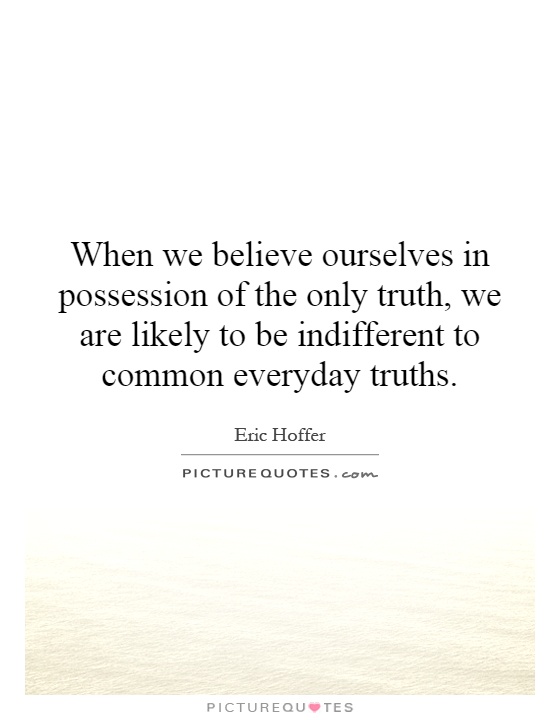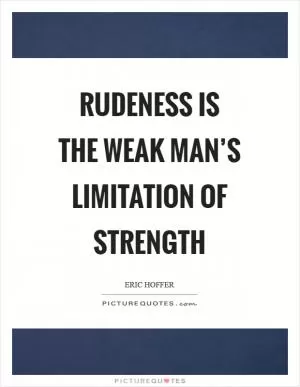When we believe ourselves in possession of the only truth, we are likely to be indifferent to common everyday truths

When we believe ourselves in possession of the only truth, we are likely to be indifferent to common everyday truths
Eric Hoffer, a renowned American philosopher and author, once said, "When we believe ourselves in possession of the only truth, we are likely to be indifferent to common everyday truths." This statement holds a profound significance in today's world, where individuals often cling to their own beliefs and ideologies without considering alternative perspectives. Hoffer's words serve as a reminder of the dangers of closed-mindedness and the importance of remaining open to new ideas and truths.Hoffer's philosophy emphasizes the idea that when we become too entrenched in our own beliefs, we become blind to the truths that exist outside of our own worldview. This can lead to a sense of arrogance and superiority, where we believe that our truth is the only truth worth knowing. In doing so, we become indifferent to the common everyday truths that surround us, missing out on valuable insights and perspectives that could enrich our lives.
In today's polarized society, it is all too easy to fall into the trap of believing that our truth is the only truth. This mindset can lead to a lack of empathy and understanding towards those who hold different beliefs, creating division and conflict. By remaining open to different perspectives and being willing to consider alternative truths, we can foster a sense of unity and cooperation that is essential for a harmonious society.
Hoffer's words also serve as a caution against the dangers of dogmatism and extremism. When we believe ourselves to be in possession of the only truth, we may be more likely to dismiss opposing viewpoints and resort to extreme measures to defend our beliefs. This can lead to intolerance, violence, and a breakdown of civil discourse.












 Friendship Quotes
Friendship Quotes Love Quotes
Love Quotes Life Quotes
Life Quotes Funny Quotes
Funny Quotes Motivational Quotes
Motivational Quotes Inspirational Quotes
Inspirational Quotes